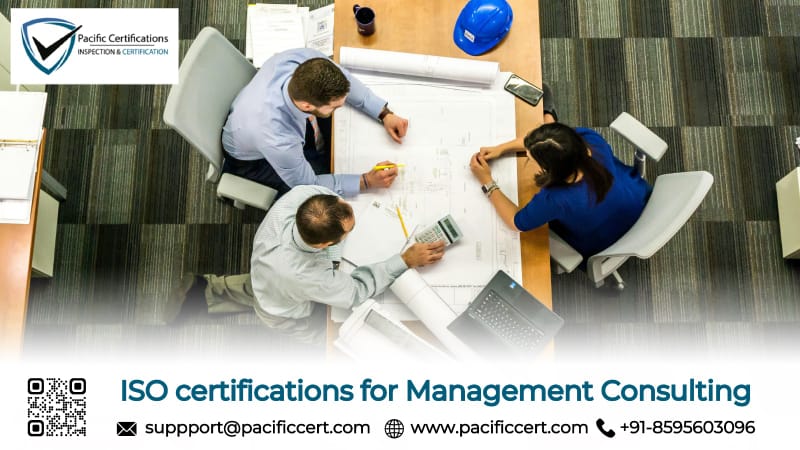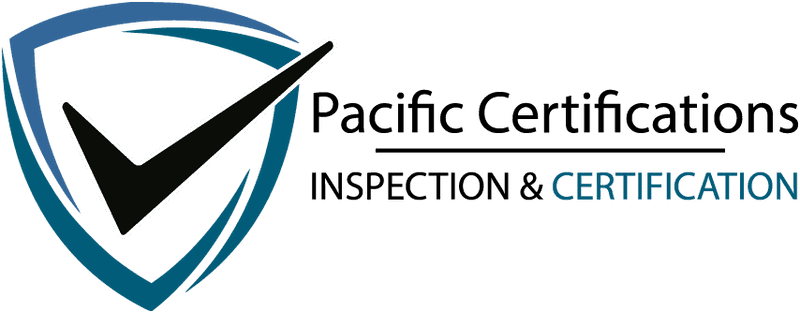ISO Certifications for Management Consulting Services, Requirements and Benefits

Introduction
Management consulting service providers operate in a trust-driven environment where analytical rigor, confidentiality, consistency of advice, and ethical governance directly influence client outcomes and long-term relationships. Consulting firms advise organizations on strategy, operations, risk management, transformation programs, governance structures, and performance improvement, often impacting critical business decisions at senior leadership and board levels.
Management consulting engagements involve access to sensitive commercial data, financial information, internal processes, employee data, and strategic plans. ISO certifications have therefore become an essential framework for management consulting firms to demonstrate structured service delivery, disciplined project governance, secure information handling, and consistent professional standards across engagements, geographies, and consulting teams.
In management consulting, credibility is not defined by insight alone, but by the systems that support it.
To know more how we can assist your management consulting firm with ISO certifications, please contact us at [email protected].
Quick Summary
ISO certifications provide management consulting service providers with internationally recognized frameworks to manage quality through ISO 9001, information security through ISO/IEC 27001, business continuity through ISO 22301, occupational health and safety through ISO 45001, privacy protection through ISO/IEC 27701, and service reliability through structured management systems. These certifications help consulting firms strengthen governance, reduce delivery and data risks, improve consistency, and enhance trust with corporate, government, and regulated clients.
Applicable ISO Standards for Management Consulting
Below are the most common ISO standards applicable to management consulting service providers:
ISO 9001:2015 - Quality Management Systems
ISO 9001 helps management consulting firms establish structured methodologies for project initiation, analysis, recommendation development, review, and client delivery. It supports consistent consulting outcomes, controlled documentation, and continual improvement across different consultants and engagements.
ISO 27001:2022 - Information Security Management Systems
ISO/IEC 27001 is critical for consulting firms handling sensitive strategic, financial, and operational client information. It provides a framework to manage access control, data protection, secure collaboration, and incident response.
ISO 45001:2018 - Occupational Health and Safety Management Systems
ISO 45001 supports management consulting firms in managing workplace risks, stress, travel-related hazards, and employee well-being in high-pressure consulting environments.
ISO 22301:2019 - Business Continuity Management Systems
ISO 22301 ensures that consulting services remain available during disruptions such as system outages, staff unavailability, travel restrictions, or external crises, protecting contractual commitments and client trust.
ISO/IEC 27701:2019 - Privacy Information Management Systems
This standard extends ISO/IEC 27001 to address privacy obligations where consulting firms process personal data related to employees, customers, surveys, assessments, or regulatory reviews.
Click here to find out more applicable standards to your industry
Contact us at Pacific Certifications to assist you in this transformative journey!
What are the requirements of ISO Certifications for Management Consulting Services?
Management consulting service providers seeking ISO certification must establish and maintain documented policies, procedures, and records aligned with the selected ISO standards. Key requirements include the following:
ISO 9001:2015 - Quality Management Systems
Requirements:
Understand the internal and external issues that can affect the quality management system (QMS).
Demonstrate top management's commitment to the QMS and define roles and responsibilities.
Address risks and opportunities, set quality objectives, and plan changes.
Provide necessary resources, ensure competence, awareness, and communication, and maintain documented information.
Plan, implement, and control processes to meet quality objectives.
Monitor, measure, analyze, and evaluate the QMS, including internal audits and management reviews.
Identify and implement opportunities for improvement, including corrective actions for nonconformities.
ISO 45001:2018 - Occupational Health and Safety Management Systems
Requirements:
Understand the organization's context, demonstrate leadership and worker participation.
Identify hazards, assess risks, and determine controls, set OH&S objectives and plans to achieve them.
Ensure resources, competence, awareness, communication, and documented information for the OH&S system.
Plan and control operations, emergency preparedness, and response.
Monitor and measure OH&S performance, conduct internal audits and management reviews.
Address nonconformities, take corrective actions, and continually improve the OH&S system.
ISO 27001:2022- Information Security Management Systems
Requirements:
Understand the organization's context, demonstrate leadership, and establish an information security policy.
Conduct a risk assessment and treatment, set information security objectives, and plan to achieve them.
Ensure resources, competence, awareness, communication, and documented information for the ISMS.
Implement and control information security measures and controls.
Monitor and measure information security performance, conduct internal audits and management reviews.
Address nonconformities, take corrective actions, and continually improve the ISMS.
Tip:Start by mapping your existing consulting methodologies, project governance practices, client data handling processes, and internal review controls against ISO requirements to identify gaps early and keep documentation aligned with how consulting work is actually delivered.
What are the benefits of ISO Certifications for Management Consulting Services?
ISO certifications are suitable for strategy consultancies, operations consulting firms, advisory practices, and management consulting divisions. Key benefits include:
Stronger client confidence and professional credibility through demonstrable governance and structured consulting practices.
More consistent project delivery and advisory quality, reducing dependency on individual consultants and minimizing variability.
Improved protection of confidential client and strategic data, lowering the risk of data breaches and reputational harm.
Better alignment with corporate, regulatory, and procurement expectations, especially for enterprise and public-sector clients.
Improved resilience during disruptions, ensuring continuity of advisory services and contractual commitments.
Greater eligibility for tenders, panels, and long-term advisory contracts, where ISO certification is increasingly expected.
Management consulting services are facing increasing governance scrutiny as organizations demand greater accountability from external advisors involved in strategic and operational decision-making. Over recent years, corporate procurement and risk teams have expanded their involvement in the selection of consulting firms, with advisory engagements now subject to formal vendor due-diligence processes similar to those applied to financial, IT, and legal service providers. Client audits of consulting firms covering data protection, confidentiality, and delivery governance have increased significantly, particularly in regulated sectors such as finance, healthcare, energy, and public administration.
Looking ahead to 2030, ISO-aligned governance is expected to become a baseline operational requirement for mid-to-large management consulting firms working with enterprise, multinational, and regulated clients.
How Pacific Certifications Can Help
Pacific Certifications, accredited by ABIS, acts as an independent certification body for management consulting service providers by conducting impartial audits against applicable ISO standards. Our role is to objectively assess whether documented management systems and operational consulting practices conform to international ISO requirements, based strictly on verifiable evidence and records.
We support consulting firms through:
Independent certification audits conducted in accordance with ISO/IEC 17021
Practical assessment of real consulting workflows, governance controls, and information handling
Clear audit reporting reflecting conformity status and certification decisions
Internationally recognized ISO certification upon successful compliance
Surveillance and recertification audits to maintain certification validity
If you need support with ISO certification for your management consulting services, contact us at [email protected]or +91-8595603096.
Author: Ashish
Read More at: Blogs by Pacific Certifications
